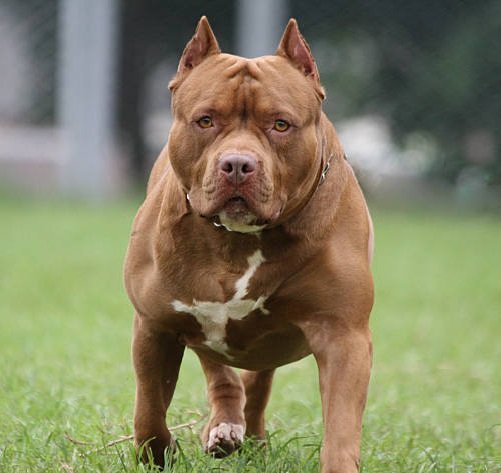The Miniature Goldendoodle is a popular designer dog breed known for its intelligence, affectionate personality, and hypoallergenic coat. As a mix between a Golden Retriever and a Miniature Poodle, this breed has captured the hearts of families, singles, and seniors alike. Whether you’re considering adding one to your family or simply curious, this comprehensive guide will provide all the information you need.
Table of Contents
- What is a Miniature Goldendoodle?
- Miniature Goldendoodle Appearance
- Temperament and Personality
- Health and Lifespan
- Caring for Your Miniature Goldendoodle
- Nutrition
- Grooming
- Exercise
- Miniature Goldendoodle Training Tips
- Is a Miniature Goldendoodle Hypoallergenic?
- Miniature Goldendoodle vs. Standard Goldendoodle
- Where to Get a Miniature Goldendoodle
- FAQs About Miniature Goldendoodles
- Conclusion
- Disclaimer
What is a Miniature Goldendoodle?
The Miniature Goldendoodle is a hybrid breed created by crossing a Miniature Poodle with a Golden Retriever. This crossbreed combines the best traits of both parents: the intelligence and low-shedding coat of the Miniature Poodle with the friendly and loyal nature of the Golden Retriever. Miniature Goldendoodles are smaller than standard Goldendoodles, making them ideal for people who live in apartments or have limited space.
Miniature Goldendoodle Appearance

Miniature Goldendoodles are known for their teddy bear-like appearance. Key features include:
- Size: 15–35 pounds and 13–20 inches tall.
- Coat: Wavy or curly, soft, and often hypoallergenic.
- Colors: Common colors include cream, gold, apricot, red, chocolate, and black.
Their adorable, expressive eyes and floppy ears make them incredibly charming.
Temperament and Personality
The Miniature Goldendoodle is celebrated for its friendly and affectionate nature. They are excellent with children, making them ideal family pets. Their temperament includes:
- Intelligence: Quick learners who respond well to training.
- Playfulness: Love engaging in games and outdoor activities.
- Companionship: Thrive in human interaction and enjoy being part of the family.
These dogs are known for being adaptable and eager to please, making them suitable for first-time dog owners.
Health and Lifespan
The average lifespan of a Miniature Goldendoodles is 10–15 years. While generally healthy, they can inherit some genetic conditions from their parent breeds. Common health concerns include:
- Hip Dysplasia
- Progressive Retinal Atrophy (PRA)
- Allergies
- Ear Infections
Regular vet checkups and preventive care can help maintain their health.
Caring for Your Miniature Goldendoodle
Nutrition
A balanced diet is essential for a healthy Miniature Goldendoodle. Look for high-quality dog food rich in protein, healthy fats, and essential nutrients. Avoid overfeeding to prevent obesity.
Grooming
Their coat requires regular grooming to prevent matting and maintain its softness. Key grooming needs include:
- Brushing 2–3 times a week.
- Regular baths (every 4–6 weeks).
- Professional grooming every few months.
Exercise
The Miniature Goldendoodle is an active breed that needs daily physical activity.
- Walks: 30–60 minutes per day.
- Playtime: Interactive games like fetch or tug-of-war.
- Mental Stimulation: Puzzle toys and training sessions to engage their intelligence.
Miniature Goldendoodle Training Tips
Training a Miniature Goldendoodle is a rewarding experience due to their intelligence and eagerness to learn. Here are some tips:
- Start Early: Begin socialization and basic commands as puppies.
- Positive Reinforcement: Use treats and praise for encouragement.
- Consistency: Stick to a routine for faster learning.
With proper training, they can excel in obedience, agility, and even therapy work.
Is a Miniature Goldendoodle Hypoallergenic?
While no dog is completely hypoallergenic, the Miniature Goldendoodle is often recommended for allergy sufferers. Thanks to the Poodle genes, their coats shed minimally, reducing allergens.
Miniature Goldendoodle vs. Standard Goldendoodle
The main difference between these two variations lies in their size:
- Miniature Goldendoodle: 15–35 pounds, suitable for smaller spaces.
- Standard Goldendoodle: 50–90 pounds, better for larger homes or active families.
The smaller size of the Miniature Goldendoodle makes it more manageable for many owners.
Where to Get a Miniature Goldendoodles
When looking to adopt or purchase a Miniature Goldendoodles, consider the following:
- Reputable Breeders: Ensure they perform health screenings on the parent dogs.
- Rescue Organizations: Look for dedicated Goldendoodle rescue groups.
- Avoid Puppy Mills: Prioritize ethical sources over low-cost, high-volume breeders.
FAQs About Miniature Goldendoodles
- Are Miniature Goldendoodles good with kids?
Yes, they are gentle and playful, making them great companions for children. - How much do Miniature Goldendoodles cost?
Prices can range from $1,500 to $5,000 depending on the breeder’s reputation and lineage. - Do Miniature Goldendoodles bark a lot?
They are not excessive barkers but may alert you to strangers. - How much exercise do they need?
At least 30–60 minutes of daily exercise is recommended.
Miniature Goldendoodles Traits at a Glance
| Trait | Details |
|---|---|
| Size | 15–35 pounds |
| Height | 13–20 inches |
| Coat Type | Wavy or curly, hypoallergenic |
| Colors | Cream, gold, apricot, red, chocolate |
| Lifespan | 10–15 years |
| Temperament | Friendly, intelligent, playful |
| Exercise Needs | Moderate to high |
| Training Difficulty | Easy, eager to please |
| Grooming Needs | Regular brushing and occasional trims |
Conclusion
The Miniature Goldendoodle is a lovable, intelligent, and versatile breed that makes an excellent addition to many households. Their friendly demeanor, minimal shedding, and adaptability make them a top choice for families and individuals. By understanding their needs and providing proper care, you can ensure a happy and healthy life for your furry friend.
Disclaimer
This article is for informational purposes only and is not a substitute for professional veterinary advice. Always consult a qualified veterinarian for specific care and health concerns about your pet.





